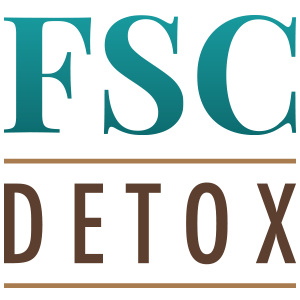How to Throw an Awesome Sober Halloween Party
The Holiday Season and Living in Sobriety
Halloween often signifies the start of the holiday season. In Orange County and all of Southern California, it is also the start of cooler weather, the beginning of many gatherings with family and friends. As the kick-off for the “party season” Halloween might be your first sober event. Sobriety does not mean that you can no longer have fun. With tips from our team at Fresh Start of California, you can plan a fun, memorable, and sober Halloween party.
If you are battling addiction and are ready to start a new chapter, Fresh Start of California offers detox, inpatient, and outpatient recovery solutions in Orange County. We can work with you to move through the phases of detox and rehabilitation so that you can have confidence in sobriety. Let our team be your support system and jump into this holiday season with a renewed excitement for life.
Contact Fresh Start of California today.
8 Ideas for Sober Halloween Fun
If you are ready to throw an awesome party but are wondering how to make it great without alcohol, have no fear. We compiled tips and ideas to help your party be a hit, without the need for intoxication. Remember the joy of Halloween as a child, the excitement, and the playfulness.
With that spirit in mind, read the tips and ideas below to make your party a blast.
- Dress up. Be sure to let your guests know that costumes are key! You can choose a theme for the party or encourage your guests to get creative. Spend the money you would have spent on stocking the bar to create an epic costume. Need some ideas for themes? Try apocalyptic or end of the world, space life, animals, or Vegas themes so that the costumes can be cohesive.
- Create designated and different areas of interest. Have food and beverages in one space, with room to sit or stop and chat, designate an area for dancing with access to music choices, maybe supply games or activities in one room, or even a movie room with comfortable cushions and low lighting.
- Play a scary movie or humorous Halloween classic. Consider projecting a movie onto the side of your house, a wall inside, or buy a screen to play the movie outside. Horror loving friends will have something to discuss. It can serve as a conversation starter about favorite movies or a way to take a break from dancing.
- Have plenty to eat and drink. Build a menu of “mocktails” that are Halloween themed, buy pre-made non-alcoholic drinks, or supply the regular variety of water, juice, and sodas.
- Play games and even plan some “tricks.” Halloween allows us to bring out our playful side, so why not plant some tricks for your guests, jump scares with “ghosts” behind doors, or games that get people to mingle and start loosening up.
- Make memories and capture them. Place Polaroid cameras around the room and let guests take photos to pin to a photo board or bring home. Set up a photo booth. Start traditions with your sober friends that you can carry on for future events and parties. If you don’t have access to Polaroids, consider having your home photo printer available for you to take a few minutes at the end of the night to print group photos for everyone to take home.
- Turn down the lights and turn up the music. Lower lights help people release the fear of everyone watching them, so they can get loose and get down on the dancefloor. Lower lighting, colored lights, or blacklights, will help people feel comfortable dancing, and can help counteract the thought that often accompanies nights of the past that, “I dance better when I’ve had a few drinks.”
- Carve pumpkins. Pick up pumpkins for your guests or ask them to bring their own for carving. Provide stencils, tools, and space to carve pumpkins. Focusing on a task and expressing individual ideas while carving will allow guests to talk with people they may not have before. Taking the focus off of the conversation and shifting it onto a task allows guards to lower and nerves to physically release through the physical task.
Halloween Fun That You Remember
One of the biggest advantages of sobriety is that you will remember the memories that you make. No more waking up with foggy ideas of the night before, no more missed connections because you were too intoxicated to pay attention. Whether you are newly sober or have years of sobriety under your belt, fostering friendships and relationships with other sober people is advantageous. You have a common goal, a common thread, that makes it okay to enjoy yourselves without the pressure to include substances. A sober Halloween party is just the start of the holiday season’s activities that you can cherish rather than vaguely remember.
Are you ready to have a fresh view on life? Contact the Orange County detox and rehab team at Fresh Start of California to learn how we can help you fight addiction and get your life back.


